The Role of Informal and Formal Microfinance in Women’s Livelihoods In Kakuma Refugee Camp, Kenya
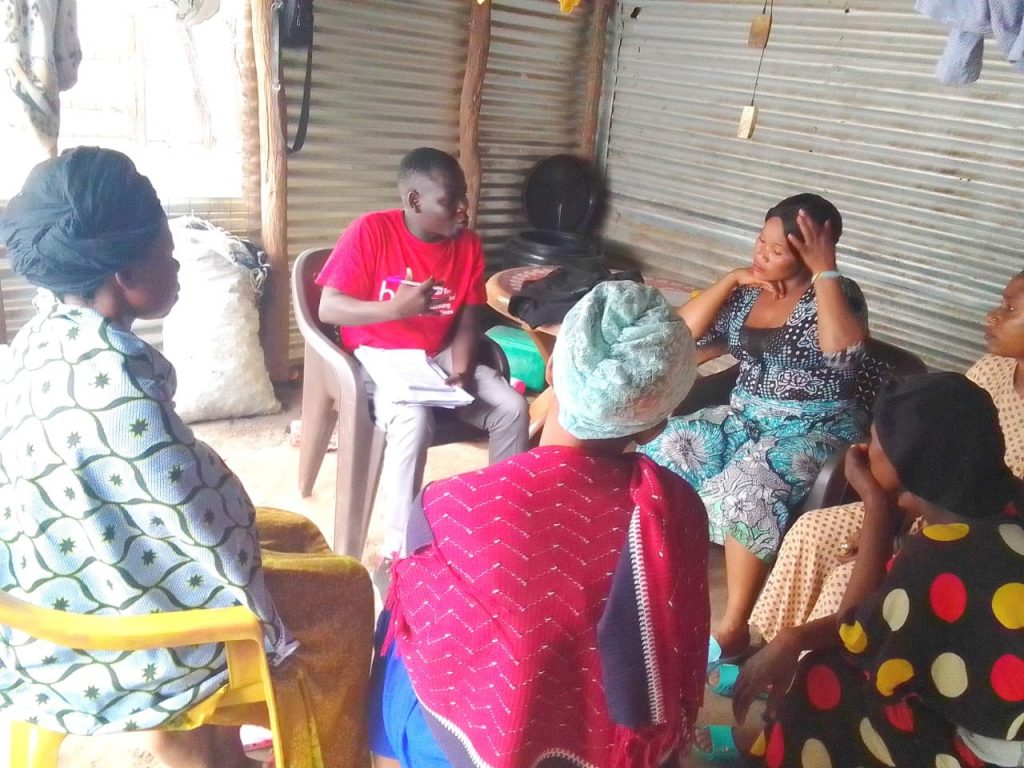
The research for this blog found that locally led women’s microfinance groups provided financial security and opportunities for refugee women who could not get funds from banks or NGOs. By Tamanji Logodi Introduction Originally a temporary home for South Sudanese fleeing war, Kakuma refugee camp now houses refugees from many countries in eastern, central and […]
BARRIERS TO REFUGEE INTEGRATION IN KAKUMA AND KALOBEYEI,NORTH–WEST KENYA
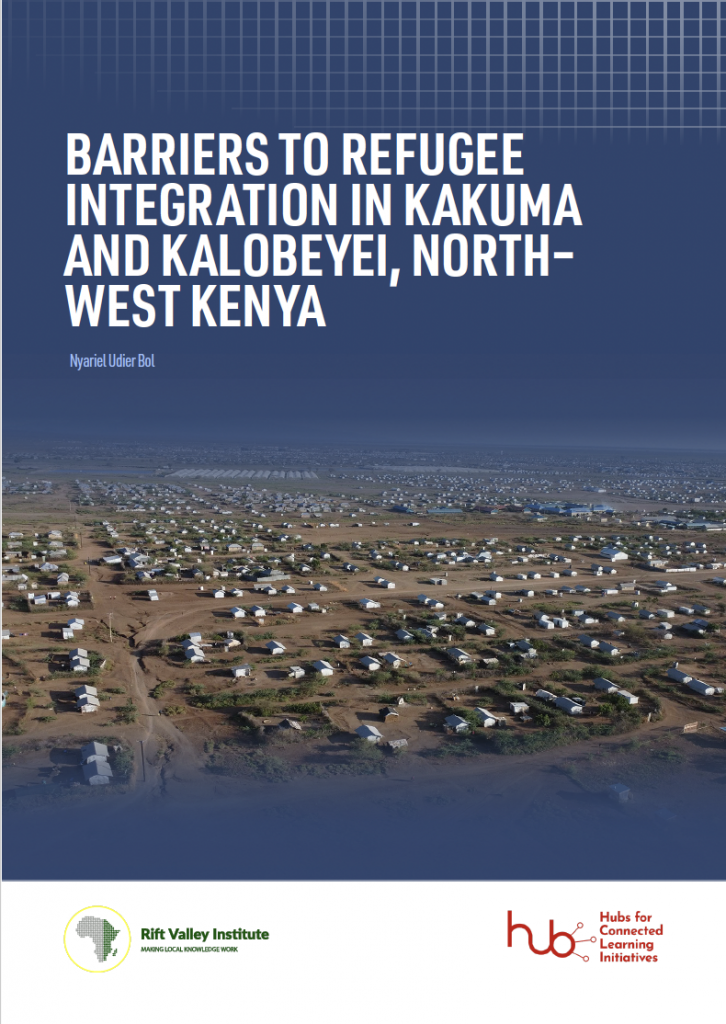
Why are the majority of refugees in Kakuma and Kalobeyei refugee camps in north–west Kenya resistant to the Kenyan government’s new official policy of integration with the local community? This paper explores this question through personal interviews and focus group discussions with a selection of refugees in the two settlement complexes and through a review […]
LIVELIHOODS AND PROSPERITY: EXPLORING SELF-RELIANCE BEYOND ECONOMICS IN KAKUMA REFUGEE CAMP
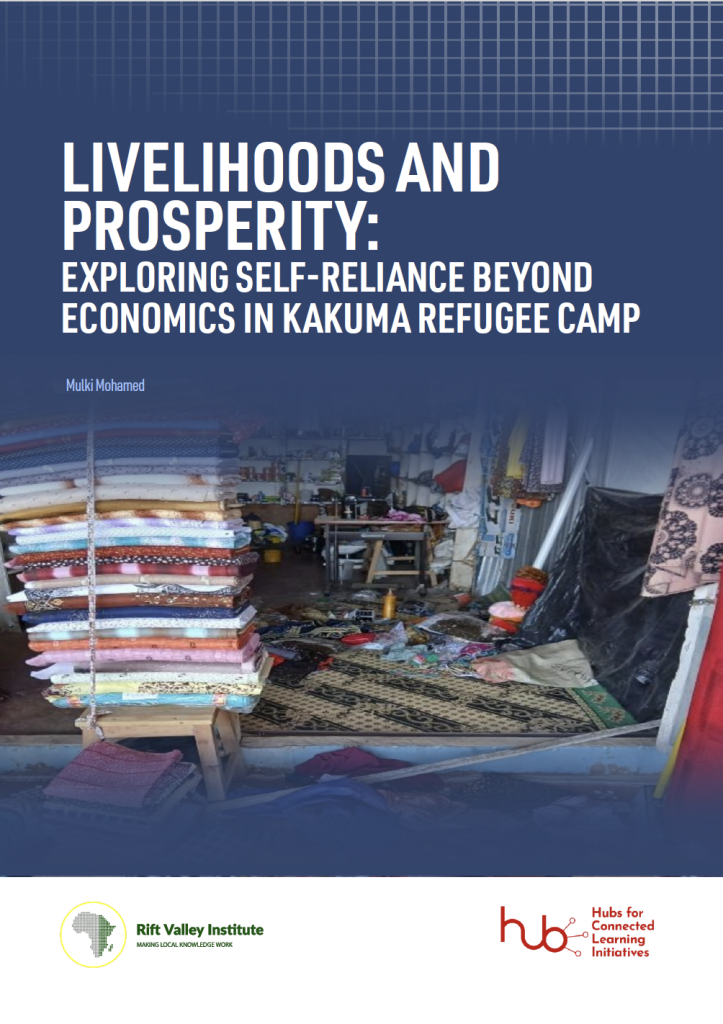
This paper explores how agency and livelihoods are articulated and shaped in the overall picture of refugee life as a whole, specifically in Kakuma refugee camp in north-western Kenya. It digs into the details of how refugees exercise self-reliance, resilience and identity, questioning conceptualizations of livelihoods framed purely in economic terms. It explores livelihoods as […]
CLIMATE ADAPTATION: WOMEN AND WATER SCARCITY STRATEGIES IN KAKUMA REFUGEE CAMP, NORTH-WEST KENYA
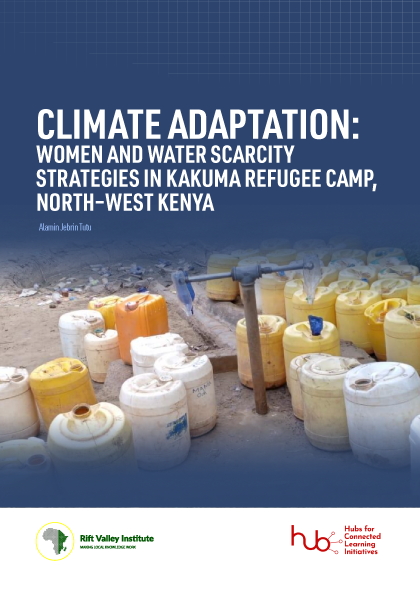
This paper investigates the coping and adaptation strategies used by women in Kakuma refugee camp in response to water scarcity, a pressing issue worsened by climate change. Qualitative data collection methods, including focus group discussions, interviews and observations, were employed in order to understand the lived experiences of women in the camp. Results showed that […]
FROM UNCERTAINITY TO PRECARITY: MORAL ECONOMY PRACTICES AMONG THE SOMALI COMMUNITY IN KAKUMA REFUGEE CAMP
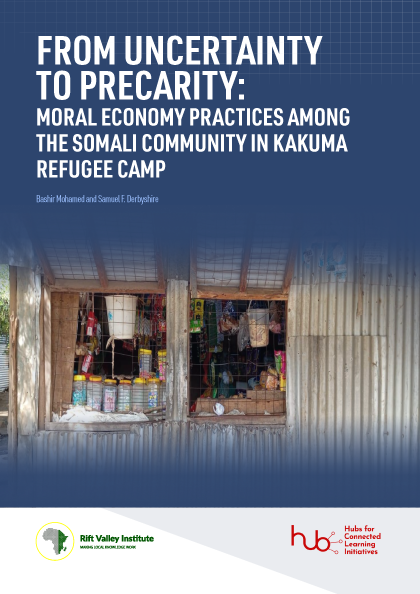
This paper explores how precarity shapes life for Somali refugees in Kakuma refugee camp, north–western Kenya. Contrasting contemporary precarity with the uncertainty that previously shaped livelihoods and social structures in Somali pastoralist communities back home, the study asks not only how things have changed but also how past experiences might be shaping novel challenges. Precarity […]
Multidimensional Causes and Responses to Climate Change and Displacement in the Horn of Africa
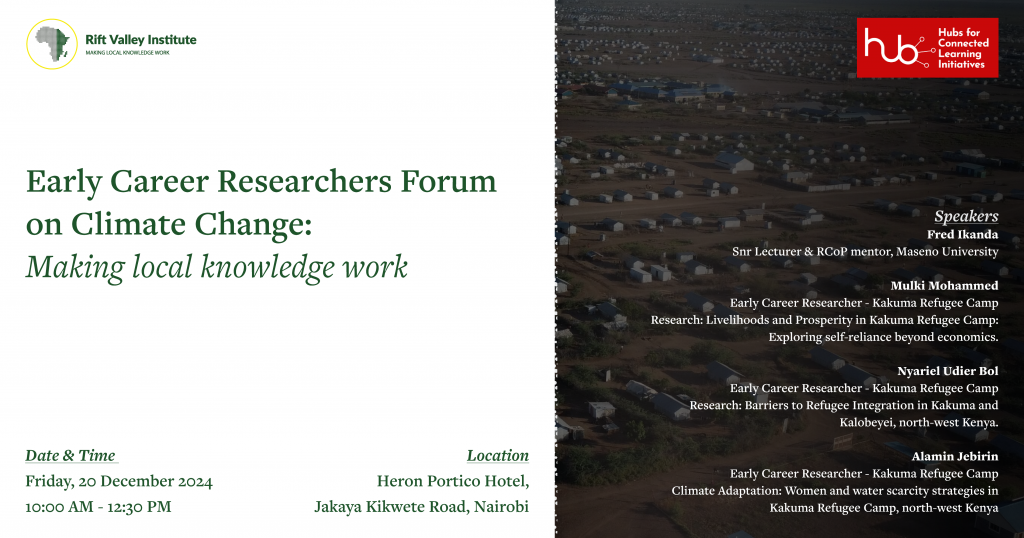
Date: Friday, 20 December 2024Time: 10:00 AM – 12:30 PM Venue: Heron Portico Hotel, Jakaya Kikwete Road, Nairobi and onlinePartners: Rift Valley Institute & OSUN Hubs for Connected Learning Initiatives Established in 1992, the Kakuma refugee camp has grown into one of the largest refugee settlements in the world, hosting more than 200,000 refugees from Sudan, South Sudan, Somalia, […]
Report launch: People-centered integration in the East African Community
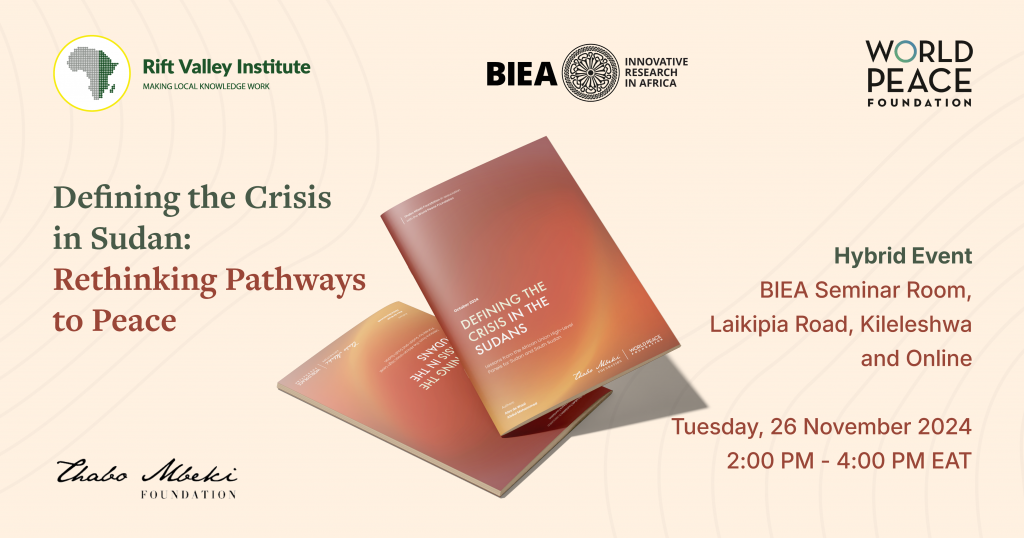
WebinarDate: Wednesday, 27 November 2024Time: 2:00 PM – 4:00 PM Participatory regionalism – the idea that regional organisations should enable societal stakeholders to engage and shape policy agendas – has been central to the East African Community’s (EAC) vision of regional integration since its re-founding in 1999. This was made explicit in the EAC treaty which called […]
PEOPLE-CENTRED INTEGRATION IN THE EAST AFRICAN COMMUNITY: CHALLENGES AND OPPORTUNITIES FOR PARTICIPATORY REGIONALISM
SUMMARY
RVI ANTHOLOGY: CELEBRATING 20 YEARS OF RESEARCH
In 2021 RVI celebrated the 20-year anniversary of its founding in southern Sudan in 2001. As part of these celebrations, we decided to produce an Anthology of our published work over the last two decades: 20 chapters to mark 20 years. The Anthology covers a great deal of ground, including pieces on subjects ranging from […]
Current trends and future scenarios of Somali diaspora engagement
The global Somali diaspora numbers two million people that live outside the Somali regions of the Horn of Africa. The strong links that diaspora populations maintain with the Somali regions—engaging multifariously in the spheres of development, politics, and economy—exert a crucial influence on Somali society in the Horn. However, in recent years there have been indications […]
